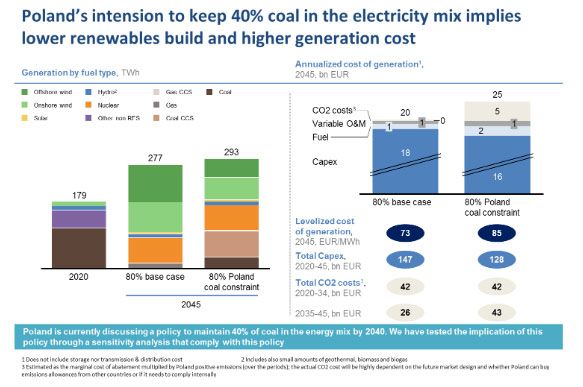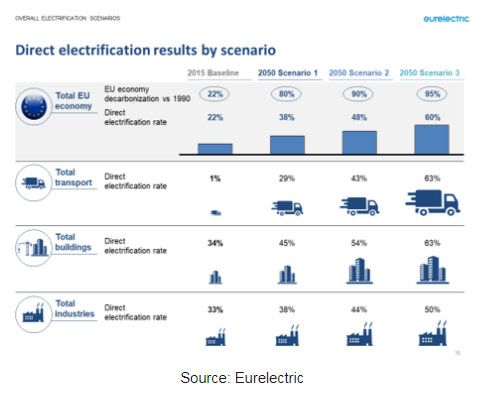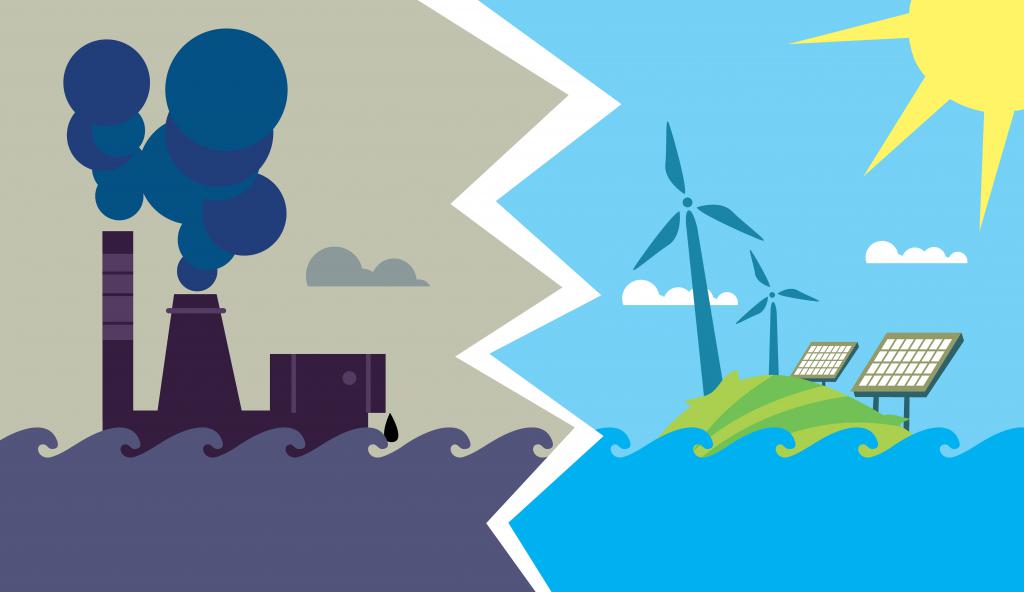Successful energy transition must be fair and just to ensure that no EU region is left behind – reveal the results of a Eurelectric’s study on Decarbonisation pathways published yesterday. The study shows a strong link between decarbonisation enabled by electrification, which must be carried out in accordance with the principle of the just energy transition. The study acknowledges that Member States have different starting points when it comes to their electricity mixes, resources and the overall level of electrification. For Member States with lower GDP per capita levels, higher carbon intensity of electricity generation and below average electrification rates, decarbonisation and electrification pathways will rely on many key enablers. As Eurelectric’s study show these pre-requisites include public acceptance, commercial availability of key transition technologies and allocation of dedicated EU funding that can help to share the costs of energy transition in a more fair and balanced way.
Eurelectric’s study is a relevant contribution to the ongoing debate concerning the scale and magnitude of costs associated with decarbonisation of the Polish power sector and electrification of its economy. The results of the study show that to enable 80% decarbonisation of the whole economy through its strong electrification from 18% today to 28% in 2050 total electricity generation in Poland, which is expected to be 179 TWh in 2020, would need to grow by at least 100 TWh, more than 55% than today. Depending on technology pathway chosen a strong decarbonisation of the Polish power sector underpinning 80% electrification of the economy would require investments of EUR 128-148 bn into generation assets alone by 2045, depending on a respective scenario analysed – with and without coal constraints. In addition, 68-85 bn EUR of CO2 costs would need to borne by the sector in 2020-2045 CO2 for compliance. Large investments into electricity grids required to enable such strong carbon neutral electricity supply would lead to further significant increase of the overall system costs.

Source: Eurelectric
According to Eurelectric’s study results commercial availability of key transition technologies, such as CCS/CCU and storage, is an important assumption made to achieve these ambitious objectives. The public acceptance for very high levels of renewables deployment, electricity grid developments and sharing the costs of the energy transition across society are other key pre-requisites. The costs and challenges associated with strong electrification of the economy and the pursuit of carbon neutral electricity supply mix in Poland by 2045 already are best understood when put into the context of affordability.
Today over 80% of electricity in Poland is generated from coal for security of supply reasons related to ensuring system reliability from domestic resources. Poland’s GDP per capita in PPS is at the level of 68% of EU average, and real GDP per capita is 40% of the EU average, which limits the possibility of transferring the costs of energy transition to the final customers. The journey towards reaching carbon neutrality by the Polish power sector is by definition more ambitious and challenging than in other regions of Europe, as demonstrated by Eurelectric.
According to Eurelectric’s study results placing the Polish electricity sector on a pathway towards full carbon neutrality by 2045 would require at least EUR 20 bn of additional investments into generation assets alone on top of EUR 128bn required by a close-to carbon neutrality scenario, which assumes over 90% reduction of CO2 emission intensity of Polish electricity supply as compared to 2005. As the costs of the full carbon neutrality scenario result in EUR 147 bn of total investments into generation assets alone they overlook the costs of stranded assets that would certainly increase the overall system costs further, particularly in Poland.
Additionally, all Eurelectric’s decarbonisation pathway scenarios result in extremely high CO2 costs related to CO2 emissions from the Polish power sector in the 2020-2045 period, increasing the bill of the energy transition for final consumers. It is important to note that in a scenario that attempts to take into consideration Poland’s intention to continue using coal up to 2040 the results show that 34% of electricity can be generated from coal and coal CCS in 2045. This scenario results in over 90% decarbonisation of the Polish electricity supply as compared to carbon intensity of electricity supply in 2005, and requires EUR 20bn less of capital investments into generation assets alone than full carbon neutrality scenario assuming that any remaining CO2 emissions could offset at most likely much lower CO2 cost elsewhere. The study results show that the CO2 costs are likely to continue to be a significant burden for the Polish electricity companies as they divert available funds from capital investments into covering operational expenses for CO2 price related compliance.
Eurelectric’s analysis shows a significant potential for renewables development but also for electrification of other sectors of the economy. The 80%, 90% and 95% emission reduction scenarios by 2050 assume a 28%, 38% and 50% direct electrification of the Polish economy, as compared to 18% today. This results in doubling of energy supply in 2045 in the most ambitious scenario to 332 TWh, as compared to 179 TWh today. Electrification of energy demand creates a significant opportunity for electricity companies, especially in electrifying transport, buildings and industry as compared to business as usual scenarios and must be considered in the context of feasibility and key pre-requisites required.

To enable strong electrification and decarbonisation in Poland Eurelectric’s study finds out that certain preconditions need to be made - “to ensure just energy transition support and dedicated EU funding will be required for Member States that face a more difficult starting point in the electrification and energytransition journey”. Significant EU support would need to be mobilised to generate investments whilst maintaining affordable electricity prices for households and industry. Therefore, the ongoing Multiannual Financial Framework 2021-2027 negotiations should be the earliest possible opportunity to establish a dedicated Just Energy Transition Fund for the coal-dependent regions to mitigate the costs of EU’sambitious climate policies for Polish consumers. Additionally, the magnitude of costs related to energytransition in Poland showed by Eurelectric’s study implies that dedicated EU funds, such as structuraland cohesion funds, should be increased and continue to enable investments that can facilitate the achievement of ambitious decarbonisation journey through electrification in countries with different starting points like Poland.

